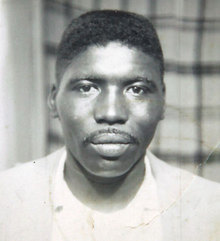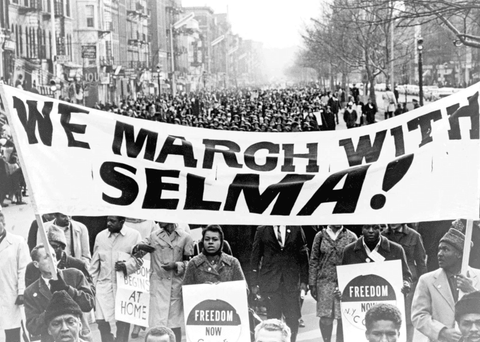
Jimmie Lee Jackson: The Violent End of a Young Activist and the Catalyst for Change
Share Black History
A Life Dedicated to Change
February 26th, 1965, marks the anniversary of a tragedy that sent shockwaves through the Civil Rights Movement. Jimmie Lee Jackson, a 26-year-old Black activist and church deacon, died from injuries sustained at the hands of Alabama State Troopers eight days after a brutal attack in his hometown of Marion. His death and the subsequent events in Selma changed the course of American history.

Portrait of Jimmie Lee Jackson
Jimmie Lee Jackson was a familiar face in the struggle for voting rights in Alabama. A veteran and a Baptist deacon, he had tried to register to vote for years but was continually thwarted by the state's discriminatory practices. This injustice drove him to join the movement led by the Southern Christian Leadership Conference (SCLC).
The Fateful Night
On February 18th, 1965, Jackson joined approximately 500 people in a peaceful march from Zion United Methodist Church to the Perry County jail in Marion. They were protesting the arrest of James Orange, a fellow SCLC activist. Their intention was to sing hymns and return to the church. However, a sinister force lay in wait. Police and state troopers, poised for ambush, blocked their path. As tensions rose, the streetlights were suddenly extinguished, plunging the scene into a darkness that masked the impending violence.
The police unleashed a brutal attack, not just on the protesters, but on journalists attempting to document the events. Cameras were smashed, and reporters were beaten, including NBC News correspondent Richard Valeriani, who was hospitalized due to his injuries.
A Brutal Assault
Amidst the confusion, Jimmie Lee Jackson ran into Mack's Cafe with his mother, Viola Jackson, and his 82-year-old grandfather, Cager Lee, to escape the violence. The state troopers pursued them. Inside the cafe, police clubbed Cager Lee to the ground. Witness reports indicate that when Viola tried to protect her father, she too was beaten. Jimmie Lee, in an attempt to defend his mother, was slammed into a cigarette machine by a trooper and shot twice in the abdomen.
Death and the March for Justice

Harlem marches in support of Selma
Despite escaping the cafe, Jimmie Lee continued to receive blows from the police. He collapsed in front of the bus station. It took two agonizing hours before he received medical attention in Selma. Sadly, eight days later, he succumbed to his injuries. The Selma to Montgomery march, initiated by the SCLC in response to Jackson's death and the larger issue of voting rights, would begin just a few days later. This march, now known as "Bloody Sunday," further exposed the brutality of state-sanctioned oppression and eventually led to the landmark Voting Rights Act of 1965.
Justice Long Delayed
James Bonard Fowler, the trooper who shot Jackson, initially claimed self-defense. In a miscarriage of justice, a grand jury declined to indict him in 1965. It took over 40 years, until 2007, for charges to be brought against Fowler. In 2010, he pleaded guilty to manslaughter and received a shockingly light sentence of six months.
Remember and Act
Jimmie Lee Jackson's story is one of both brutal injustice and the power of collective action. His death, though tragic, was not in vain. It galvanized the nation and contributed to significant legal and social change. Let us carry his memory forward, ensuring that his name and fight are not forgotten, and by continuing to push for true justice.

